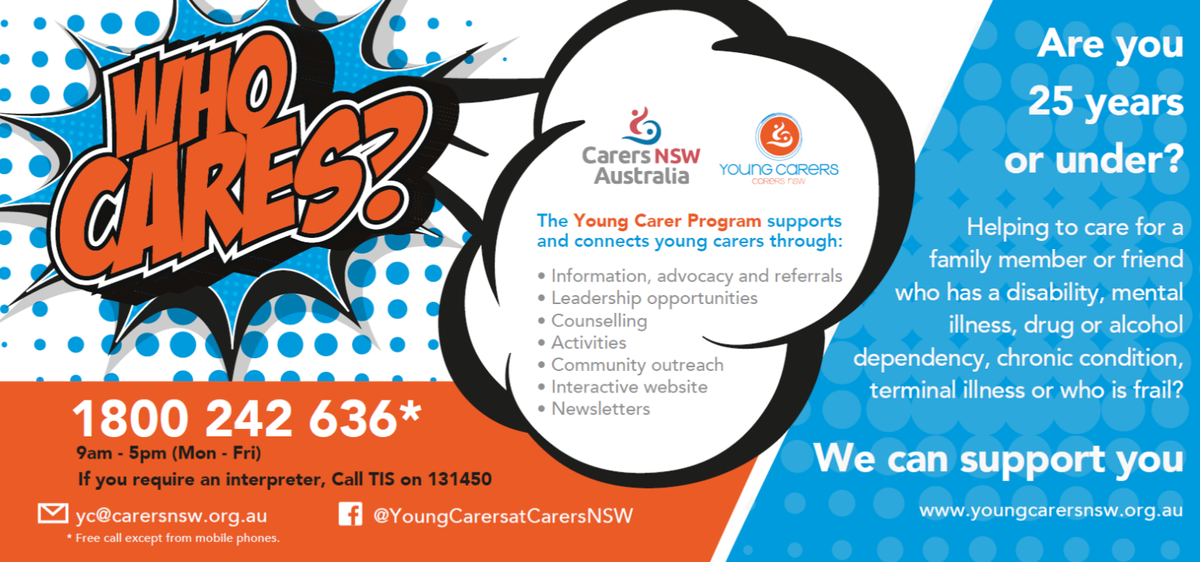GENERAL NEWS

SURVEY MY SCHOOL
An annual satisfaction survey of parents, students and staff will be conducted on behalf of all Catholic schools in the Diocese this term. The surveys are designed to gather feedback from parents, staff and students about our school and will be used to inform school improvement. Responses are confidential and individuals can not be identified.
The surveys will be launched via email next Monday 12 August and close on 23 August 2019 using the email addresses supplied to the school. If you do not receive an email with a link to the survey, you can access and complete the survey at the following link.
https://www.research.net/r/StNicholasTamworthPARENT2019
ST NICHOLAS SCHOOL BAND
Our band is growing in numbers and we are very excited about the progress we are making under the guidance of Mrs Creigh. As such, we are beginning to look for instruments. If your family has any unused musical instruments at home which are in good order, can you please see Mrs McSweeney.
YOUNG CARERS NSW
As mentioned previously, our staff recently had the privilege of listening to a presentation by Natalie Steinhardt and her colleague Kate from Young Carers NSW. Natalie is the Project Officer for Young Carers, an agency which offers support to young carers - "children and young people, 25 years or under, who help to support a family member or friend who has a disability, mental illness, drug or alcohol dependency, chronic condition, terminal illness or who is frail." Natalie made us aware that each class in our school could potentially have up to two or three students who fall into this category.
If you have a child or know a student who may benefit from some of the great resources provided to us by Natalie and her team, please contact Mrs Lisa McSweeney - lmcsweeney@arm.catholic.edu.au
NATIONAL SCIENCE WEEK 2019
Science Week has come upon us again and the theme for 2019 is Destination Moon! Over the week the students have the opportunity to take part in lots of STEAM activities and challenges in their breaks and class with the culmination of the STEAM Expo on Friday 16th August. One of the activities for this year is a home challenge.
HOME CHALLENGE
One of the featured stands at our STEAM Expo is a home challenge. This means that if you have any inventions, Lego designs, robots etc that you would like to share with the school, you are most welcome to bring your amazing work in! Just a reminder though it MUST be clearly labelled.
HELP KEEP OUR KIDS SAFE ONLINE!
Centacare NENW will be hosting a free two hour eSafety workshop in Tamworth on Monday the 9th of September for parents and carers. Presented by a representative from the Office of the eSafety Commissioner this workshop will provide information about online safeguards, cyberbullying, image based abuse and being a responsible digital citizen.
To register your attendance contact Centacare NENW on 6762 9200.
MANNERS MATTER!! But why?
Almost everyone understands that there's a reason for etiquette guidelines and rules for good manners. After all, most parents start teaching polite words and phrases to their children early in life. They know that they're giving their children an advantage that will carry over into social, educational, and eventually professional situations.
Throughout their lives, people face behaviour rules and the consequences of ignoring them. Schools have written rules that they expect students and teachers to obey. Employee handbooks are loaded with policies of etiquette and showing respect to coworkers.
Why Have Good Manners?
Without proper etiquette, society would be a mess with free-for-all behaviours that would have rude people dominating those who care about others. People would say whatever is on their minds, regardless of how crass it is. Forks would fly, and elbows would rock tables in restaurants and homes. Diners would be grossed out by people who speak with their mouths full of food.
Most parents don't want to contribute to bad behaviour in society, so they teach etiquette to their children at a very young age, starting with saying "Please" and "Thank you." They encourage their kids to share and not be selfish with their toys, and then as they get older, they progress to some of the more complex manners concepts, such as how to properly introduce someone and how to make a good first impression.
Social
Most people remember having to listen to etiquette rules over and over throughout their childhood before leaving the house. Whether they were going shopping at the local store or to a friend's house for dinner, parents repeated a long list of what was expected.
At the time, it may have seemed redundant. But once they become adults and start having their own children, they understand because they now do it. As adults, most of us still care about having a social life. Ignoring proper etiquette guidelines can leave us off the guest list and have people running the other way when they see us coming.
Professional
There are certain expectations of how a business person is supposed to act in a professional environment. If you follow the rules, you're perceived as someone who knows what you're talking about. However, if you don't, you may be laughed at and possibly even ignored. In the long run, bad manners at the office may cost you a promotion, or worse, your job.
Benefits of Good Manners
Having proper etiquette is essential in all aspects of life if you want others to respect you. Here are some of the many advantages of having good manners:
Being nice at home sets the stage for better behaviour. Your children watch how you react to various situations, so parents need to set examples and have good manners. If you are polite to them and consistent in following proper manners guidelines, they are much more likely to do the same.
Professional manners get positive attention. Skills on the job are important, but knowing how to do the work isn't the only thing expected of you. Following the etiquette rules at work will help you earn respect and possibly even contribute to promotions and raises.
Being kind to customers increases sales. Show your customers your good manners by speaking to them politely and giving them an opportunity to express their needs, and you are more likely to earn their future business.
Being polite to your friends will keep them calling. When your friends know you care enough to have good manners with them, they are more likely to include you in activities and events.
Romantic relationships are stronger when couples respect each other. Men and women who are polite and selfless are a lot more pleasant to be around than those who are selfish and rude.
Treating other people with respect makes them want to be nice back to you. Whether you need help at supermarket or you have a complaint about a product, showing good manners will make the store employees want to work with you. Holding a door for a young mum or older person can make their day much better. Smile at someone, and that just might be the bright spot in his or her day.
Driving with good manners can help prevent accidents. Road rage has never been good for anyone. Remember that all drivers make mistakes. It's up to you to maintain an even temper and avoid accidents by being aware of everything around you when you're behind the wheel.
Others will listen if you give them a chance to speak. Being a good conversationalist involves more than knowing the right words or talking all the time. The person you are speaking to will feel that you care if you take a breather and hear what he or she has to say.
Good social etiquette will keep your name on the guest list. If you RSVP, show up when you say you will, be polite to others, have good table manners, know when to leave, and thank your host for inviting you, there's a good chance you'll be invited again.
Knowing and using proper etiquette regularly can help with confidence. If you are in the habit of using good manners all the time, you won't have to worry about whether or not you're doing or saying the right thing. It will come natural to you, and others will respect you more for it.
The Right Thing to Do
Yes, having good manners will benefit you in most aspects of your life. However, the best reason to use proper etiquette is because it's the right thing to do.
THE CIRCADIAN RHYTHM
THE CIRCADIAN RHYTHM – WHAT IS IT? WHAT DOES IT MEAN FOR MY CHILD?
Quite simply, the circadian rhythm is a 24 hour biological clock which is a part of all of us from the day we are born. It regulates cycles of sleep, wake, activity, rest, hunger and other bodily functions such as voluntary muscle movements, hormone secretion, respiration etc, and restarts itself every 24 hours. Therefore, sleep and adequate rest are major factors in maintaining a healthy circadian rhythm, especially for children and studies have shown that this can affect student performance at school.
Effects of sleep loss on children
Selected statistics from research studies into sleep loss and its effects on children and teenagers include:
Sleep loss may cause a range of schooling problems, including behavioural problems and poor concentration.
Chronically sleep-deprived teenagers are more likely to have problems with impulse control, which leads to risk-taking behaviours.
Sleep problems in teenagers are associated with increased risk of disorders such as depression and attention deficit hyperactivity disorder (ADHD).
How much sleep is enough?
Sleep requirements differ from one person to the next depending on age, physical activity levels, general health and other individual factors. In general:
Primary school children – need about nine to 10 hours. Studies show that increasing your child’s sleep by as little as half an hour can dramatically improve school performance.
Teenagers – need about nine to 10 hours too. Teenagers have an increased sleep requirement at the time when social engagements and peer pressure cause a reduction in sleep time. Lifestyle factors such as early school start times deprive them of the required sleep-in. There is evidence that around the time of becoming a teenager, there is a shift in the sleep-wake cycle to being sleepy later in the evening with a preference for waking later.
Adults – need about eight hours, depending on individual factors. We tend to need less sleep as we age, but be guided by your own state of alertness – if you feel tired during the day, aim to get more sleep.
For more information, there are a number of useful websites that may be of interest simply by searching the net.
LOST NEW UNIFORMS - PURCHASED FROM LOWES
We have been contacted by a business in Tamworth regarding a Lowes bag of new uniforms (purchased on 14/04/2019 at 12.57pm). The bag was left in their store.
Please contact our office staff to claim.
MOBILE PHONES AND STUDENTS
Here at St Nicholas School, students are not permitted to use mobile phones whilst in our care. However we do appreciate that some students have phones to make communication with parents easier especially after school hours. Our policy is that all students with phones, ipods or other electronic devices must hand these in at the office to Mrs Grady at the start of each day and collect them at the end of the day. If phones are used inappropriately by any student they will not be permitted to bring it to school.
SUPERVISION OF STUDENTS
All parents need to be aware our supervision of students does not begin until 8.15am each day. We are becoming increasingly concerned that children are being dropped off and left on their own, unsupervised by parents before this time - often up to half an hour earlier. This is not a safe or acceptable practice. We cannot be responsible for any accident or potentially harmful incidents occurring. Please organise alternative care for your child if your child requires supervision before 8.15am.
SCHOOL STUDENT TRANSPORT SCHEME (SSTS)
For information visit https://apps.transport.nsw.gov.au/ssts



